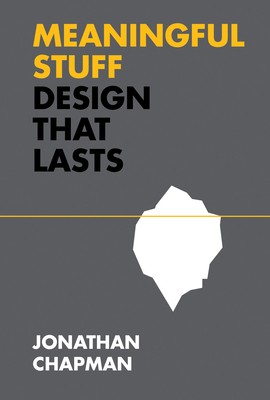
- Išsiųsime per 10–14 d.d.
- Autorius: Jonathan Chapman
- Leidėjas: MIT Press
- ISBN-10: 0262045729
- ISBN-13: 9780262045728
- Formatas: 15 x 23.1 x 2.5 cm, kieti viršeliai
- Kalba: Anglų
- Extra -25 % nuolaida šiai knygai su kodu: ENG25
Atsiliepimai
Aprašymas
An argument for a design philosophy of better, not more. Never have we wanted, owned, and wasted so much stuff. Our consumptive path through modern life leaves a wake of social and ecological destruction--sneakers worn only once, bicycles barely even ridden, and forgotten smartphones languishing in drawers. By what perverse alchemy do our newest, coolest things so readily transform into meaningless junk? In Meaningful Stuff, Jonathan Chapman investigates why we throw away things that still work, and shows how we can design products, services, and systems that last. Obsolescence is an economically driven design decision--a plan to hasten a product's functional or psychological undesirability. Many electronic devices, for example, are intentionally impossible to dismantle for repair or recycling, their brief use-career proceeding inexorably to a landfill. A sustainable design specialist who serves as a consultant to global businesses and governmental organizations, Chapman calls for the decoupling of economic activity from mindless material consumption and shows how to do it. Chapman shares his vision for an experience heavy, material light design sensibility. This vital and timely new design philosophy reveals how meaning emerges from designed encounters between people and things, explores ways to increase the quality and longevity of our relationships with objects and the systems behind them, and ultimately demonstrates why design can--and must--lead the transition to a sustainable future.EXTRA 25 % nuolaida su kodu: ENG25
Akcija baigiasi už 6d.12:29:25
Nuolaidos kodas galioja perkant nuo 10 €. Nuolaidos nesumuojamos.

- Autorius: Jonathan Chapman
- Leidėjas: MIT Press
- ISBN-10: 0262045729
- ISBN-13: 9780262045728
- Formatas: 15 x 23.1 x 2.5 cm, kieti viršeliai
- Kalba: Anglų Anglų


Atsiliepimai